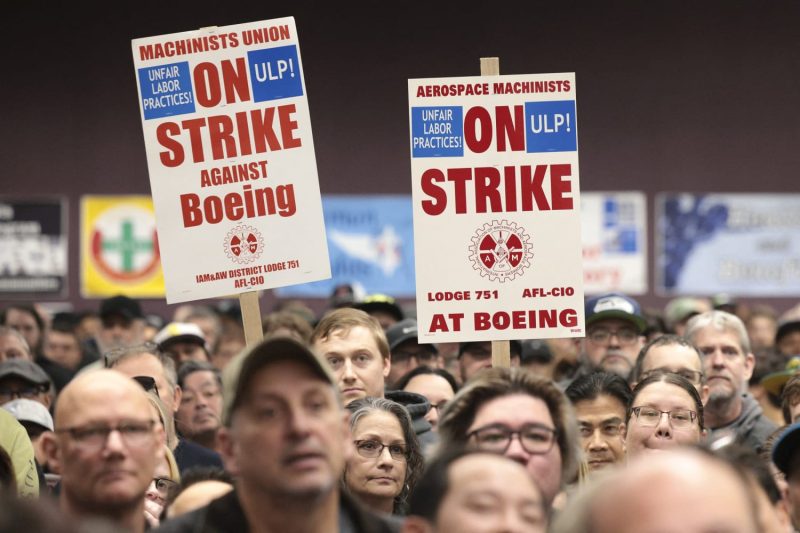The end of the strike at Boeing after the approval of a new labor contract featuring 38% wage increases signifies an important development in the manufacturing industry. This turn of events not only symbolizes an agreement between employees and employers, but also shines a light on the matter of workers’ rights and fair compensation.
The Boeing Company, an American multinational corporation that designs, manufactures, and sells airplanes, rotorcraft, rockets, satellites, telecommunication equipment, and missiles worldwide, encountered a significant milestone when machinists agreed to a new labor contract. After enduring periods of heated strife due to wage discrepancies, machinists, under their union’s guidelines, finally broke the strike that had considerably impacted the company’s operations.
The approval of the new labor contract, which includes an impressive 38% wage increase, was a pivotal factor in ending the strike. The comprehensive negotiations yielded a department-wide wage hike, over a specified period. This resolution not only satisfied the machinists’ demands but also served as an encouraging turning point in labor relations within the aviation industry.
The machinists’ strike was not simply a stand-off between employer and employees. It represented a larger ongoing conversation in the industries across the United States and globally – fair wages and the value of labor. Workers bridging the gap between skills and income is a prevalent issue. As such, Boeing’s experience offers valuable insights into the management of similar situations in the future.
The Boeing workers’ strike should be understood in the wider context of the manufacturing sector throughout the 20th and 21st centuries. Worker’s strikes are not isolated incidents, but part of a larger narrative of workers striving for fair compensation. Therefore, the satisfactory conclusion of the Boeing strike, via the approved labor contract, is an exciting development, setting a precedent in the industry.
The new labor contract, backed by the majority of the machinists, demonstrates the power of collective bargaining. It showcases the value of union representation and negotiations in reaching agreements that respect the worker’s skills, labor, and contribution to the company’s success.
Moreover, the approved labor contract also augurs well for the broader ecosystem of the manufacturing and aviation industry. With the strike ended, Boeing is expected to resume its regular operations and fulfill its deliverables, which in turn, will have wider economic impacts. This could then stimulate increased productivity and maintain the overall supply chain’s regularity, contributing to the broader macroeconomic stability.
Behind the landmark 38% wage increase lies a more profound significance. There lies an affirmation that machinists and other skilled laborers deserve fair wages proportional to their contributions. The Boeing machinists’ strike ending with such a labor contract reinstates faith in the process of collective bargaining, reflects the power of unified demands and underlines the necessary recognition of labor in our society.
That said, it’s essential to recognize that this is not the end, but a stepping stone towards many such potential negotiations and disputes within various industries. Recognizing the essence of fair compensation, companies, as well as employees, can look towards innovation in labor relations, ensuring mutual growth and enhanced productivity.




